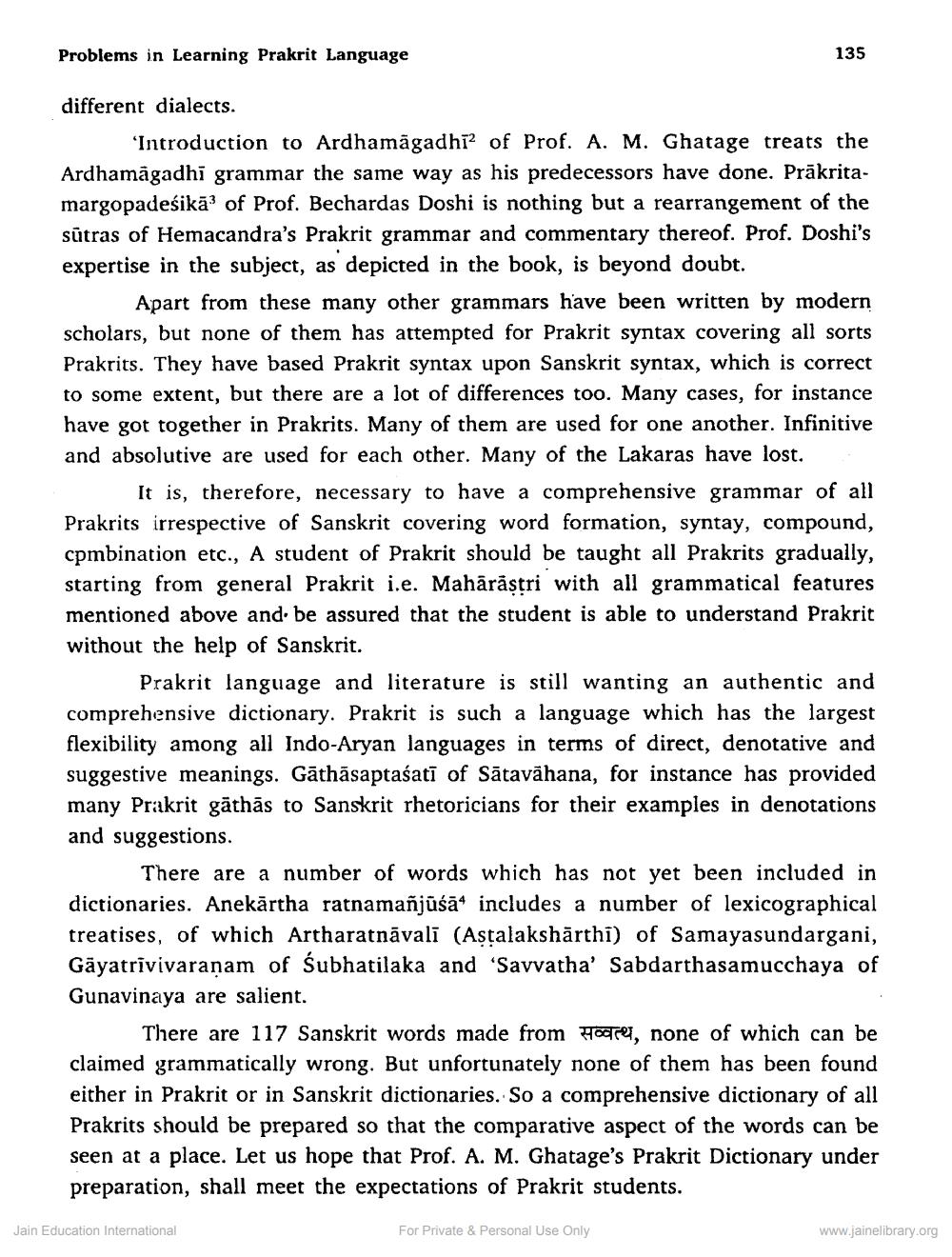________________
Problems in Learning Prakrit Language
135
different dialects.
'Introduction to Ardhamãgadhi of Prof. A. M. Ghatage treats the Ardhamāgadhi grammar the same way as his predecessors have done. Prākritamargopadeśikā? of Prof. Bechardas Doshi is nothing but a rearrangement of the sūtras of Hemacandra's Prakrit grammar and commentary thereof. Prof. Doshi's expertise in the subject, as depicted in the book, is beyond doubt.
Apart from these many other grammars have been written by modern scholars, but none of them has attempted for Prakrit syntax covering all sorts Prakrits. They have based Prakrit syntax upon Sanskrit syntax, which is correct to some extent, but there are a lot of differences too. Many cases, for instance have got together in Prakrits. Many of them are used for one another. Infinitive and absolutive are used for each other. Many of the Lakaras have lost.
It is, therefore, necessary to have a comprehensive grammar of all Prakrits irrespective of Sanskrit covering word formation, syntay, compound, cpmbination etc., A student of Prakrit should be taught all Prakrits gradually, starting from general Prakrit i.e. Mahārāştri with all grammatical features mentioned above and be assured that the student is able to understand Prakrit without the help of Sanskrit.
Prakrit language and literature is still wanting an authentic and comprehensive dictionary. Prakrit is such a language which has the largest flexibility among all Indo-Aryan languages in terms of direct, denotative and suggestive meanings. Gāthāsaptaśatī of Sātavāhana, for instance has provided many Prakrit gäthās to Sanskrit rhetoricians for their examples in denotations and suggestions.
There are a number of words which has not yet been included in dictionaries. Anekārtha ratnamañjūśā4 includes a number of lexicographical treatises, of which Artharatnāvalī (Astalakshārthi) of Samayasundargani, Gāyatrivivaranam of Subhatilaka and 'Savvatha' Sabdarthasamucchaya of Gunavinaya are salient.
There are 117 Sanskrit words made from Hoofer, none of which can be claimed grammatically wrong. But unfortunately none of them has been found either in Prakrit or in Sanskrit dictionaries. So a comprehensive dictionary of all Prakrits should be prepared so that the comparative aspect of the words can be seen at a place. Let us hope that Prof. A. M. Ghatage's Prakrit Dictionary under preparation, shall meet the expectations of Prakrit students.
Jain Education International
For Private & Personal Use Only
www.jainelibrary.org




